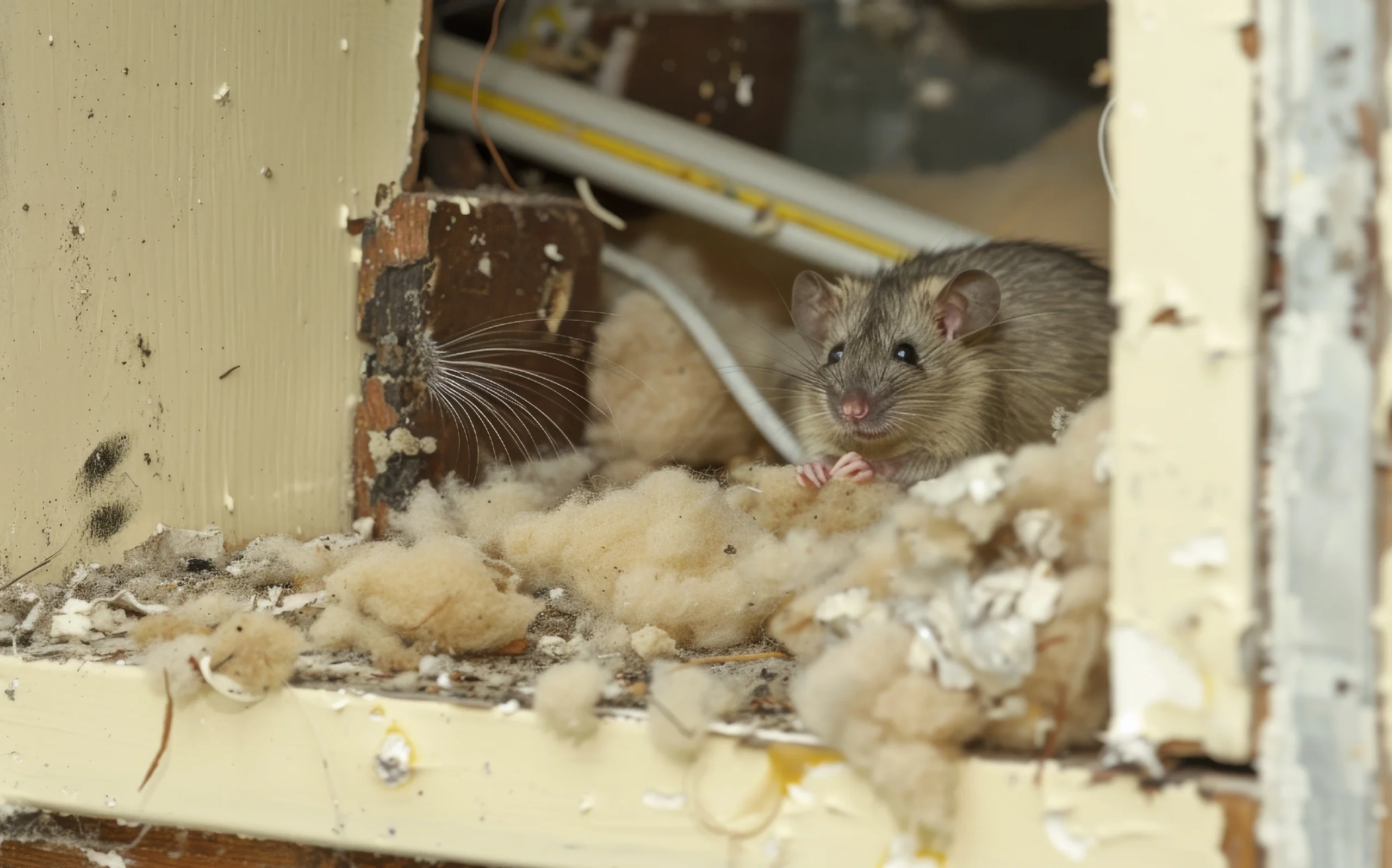
Rats are survivors by nature, having adapted to nearly every kind of environment over millions of years. Originating in Asia and Australia, they have spread across the world. In Kansas, Missouri, Arizona, & Arkansas, their knack for finding food and safe nesting spots makes them particularly common in residential and commercial spaces. Their adaptability, though fascinating, poses real challenges when they invade human habitats.
A rat infestation rarely goes unnoticed. Droppings, gnaw marks, and nesting debris are sure signs that rats have taken up residence. Acting quickly at the first sign of activity is key to preventing further damage or health risks.
Professional intervention is the best way to stop infestations at the source. Schendel Pest Services uses proven methods to identify, treat, and prevent rat problems, ensuring your home remains a clean and healthy space.
What to Know About the Behavior and Habits of Rats
Known for their intelligence and social nature, rats depend heavily on cooperation. They live together in groups called a “mischief,” where every rat plays a specific role in maintaining the colony. Their communication system involves ultrasonic sounds, body signals, and pheromones that help them coordinate activities. Regular grooming is more than cleanliness; it reinforces trust and unity within the group.
Rats prefer to stay hidden and are most active after dark. When they appear in daylight, it’s often a sign that an infestation has grown large. This nocturnal lifestyle helps them avoid predators and stay protected from human activity.
Their adaptability and problem-solving skills have long made them subjects of scientific study. By observing how rats learn and adapt, researchers have uncovered important connections between animal intelligence and human cognition.
Foods Rats Commonly Consume
Rats are extremely adaptable when it comes to food, eating whatever they can find in their surroundings. Their diet shifts based on what’s available in each location. As omnivores, they consume everything from plants and insects to discarded human food. Common sources of nourishment include:
- Trash and Leftovers: Rats often rummage through garbage bins or compost piles, feeding on discarded scraps that provide a dependable source of nourishment.
- Insects and Small Animals: When food is scarce, rats may hunt insects or small creatures to supplement their diet with much-needed protein.
- Pet Food: Any pet food left out or stored within easy reach can quickly attract rats, offering them a simple and consistent meal.
- Grains, Seeds, and Nuts: In natural environments, these foods make up a large part of a rat’s diet, giving them energy and essential nutrients.
- Fruits and Vegetables: Fresh produce or fallen fruits and vegetables supply rats with vitamins, minerals, and moisture that help sustain them.
The Survival Skills of Rats
Rats are some of the most adaptable creatures on the planet. They thrive in nearly every environment, from bustling cities and farmlands to dense forests and even icy regions. With a sharp sense of smell, they easily locate food sources, and their ability to tread water for several days helps them survive in sewers, waterways, and flooded areas.
These skilled survivors are also talented builders. They construct intricate burrow systems that provide both protection and space for storing food. Their foraging abilities are impressive, as rats can travel long distances from their nests in search of nourishment, demonstrating endurance and resourcefulness.
Controlling rat infestations is no simple task. Their rapid breeding means populations can multiply quickly, and their intelligence makes them difficult to catch. Being nocturnal, they often move undetected, avoiding traps and predators while continuing to thrive in almost any environment.
Rats in Research and Everyday Life
The scientific value of rats stems from their close biological and genetic connection to humans. They have played a critical role in advancing knowledge in fields such as genetics, disease control, behavior, and medical treatments. Their contributions continue to influence scientific research and human health.
Wild rats, however, carry a much less favorable reputation. Seen as pests, they pose risks by spreading disease through contact with droppings and urine. These dangers make them unwelcome in most environments where humans live and work.
On the other hand, pet rats are admired for their intelligence, friendliness, and trainability. Their gentle temperament and ability to bond with humans have earned them a place as beloved pets. For many, these traits make them fascinating and rewarding companions.
The Remarkable Intelligence of Rats
The study of rat intelligence has fascinated scientists for over a century. Their brains and decision-making processes closely resemble those of humans, which is why they are often chosen for research into learning, memory, and behavior. Rats are capable of mastering difficult tasks, solving puzzles, and navigating complex mazes with skill.
Another standout ability is their consistent pattern recognition. Research shows they are less likely to hesitate compared to humans, demonstrating efficiency in their decisions. This trait is a key factor in their survival and also explains why they are so valuable in scientific studies.
Yet, these strengths also make rats tough pests to control. Their intelligence and adaptability allow infestations to develop quickly, often outpacing detection. That is why skilled rodent control professionals are essential to manage and prevent rat problems.
Complete Rat Control Solutions with Schendel Pest Services
Rats pose a variety of threats to homes, including spreading disease, contaminating food supplies, damaging property, and worsening asthma or allergy symptoms. In Kansas, Missouri, Arizona, & Arkansas, these problems are frequent and require quick attention. Their ability to gnaw through electrical wiring also makes them a serious fire risk. That is why professional rat control is an essential part of maintaining a protected home environment.
At Schendel Pest Services, we begin with a detailed inspection to uncover entry points, nests, and signs of infestation. This careful assessment allows us to design a targeted treatment plan. Regular maintenance and professional care from Schendel Pest Services ensure your home remains free from rats for the long term.
Call Schendel Pest Services today and let us provide dependable rodent removal services for your home.










